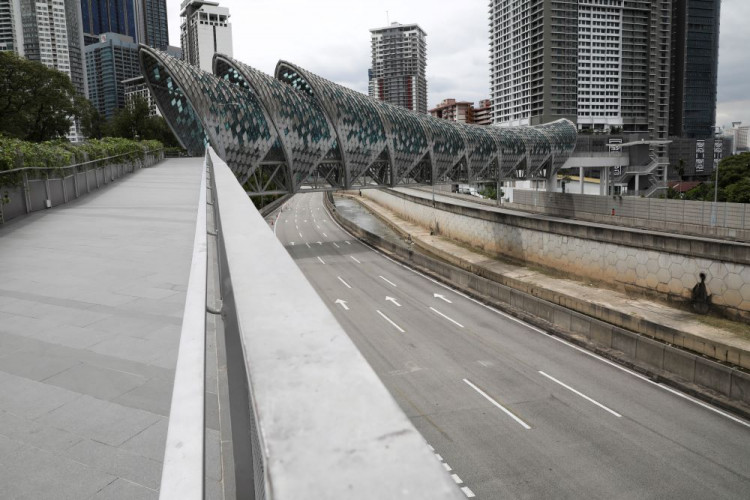Kuala Lumpur streets were abandoned Thursday morning as a super lockdown went into effect.
Millions of Malaysians have been ordered to leave their homes to buy necessities only as a result of a heightened two-week movement-control mandate imposed by the government as COVID-19 case numbers rise alarmingly.
Late Wednesday saw city streets packed with cars and people scrambling to stock up on food and other necessary items. Others had stocked up as early as a week ago.
Travel and dining out are prohibited over the coming two weeks.
Some Malaysia citizens say the lockdown is inevitable as a result of the increasing number of daily virus cases. The country recorded an average of 1,000 new COVID cases daily for most of January.
The regions affected by the super lockdown are the capital, Labuan federal territory, Penang, Selangor, Johor and the administrative capital of Putrajaya. These are densely populated and account for a big portion of the country's overall economic output.
Other areas have also been placed under movement control orders - but less strict.
However, the government says a nationwide state of emergency might be imposed for up to seven months.
The tough orders might have been better imposed on Sabah "after the rapid rise in cases" there, Epidemiological Analysis and Strategies Task Force chairperson professor Awang Bulgiba Awang Mahmud said.
Some analysts questioned if the latest lockdown came too late - since new virus clusters were already spreading across Sabah and other regions during September elections.
Malaysia was initially praised by world medical experts for its effective containment of COVID-19. The country was among several Southeast Asian nations that successfully implemented antivirus measures. There were fewer than 13,000 cases in early October.
But, in a matter of two months Malaysia's virus count topped 100,000. Earlier this week, the country said it had seen a daily record of 3,309 infections.
Before the state of emergency was declared by the king, Malaysia prime minister Muhyiddin Yassin said the country's health system was at "breaking point."
With the state of emergency in place, parliament and state legislatures will be suspended at a time when Muhyiddin's administration faces mounting pressure as a result of its alleged lapses in handling the pandemic.
Muhyiddin's government is expected to propose increased authority for the police and military to ensure public health and safety.





